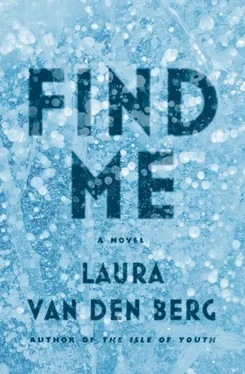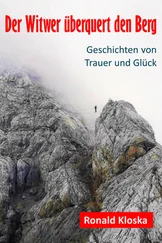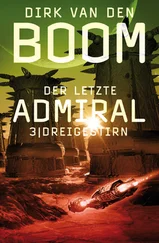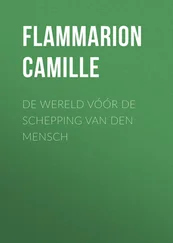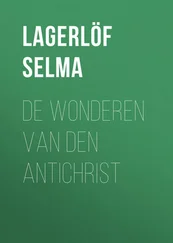He stops for a moment. His mouth is open, his throat pale and tight. I can see that he’s breathing hard. I wonder if he can sense that I’m right there, just behind the door. He wipes his lips with the back of his hand.
He licks the silver ring in his lip and then throws his shoulder against the door. The security chain jangles and I back away, afraid that somehow he can see me standing half-naked in my room and is already thinking, Come on, girl. Could you make this any easier?
I can’t call the front desk because I know the manager will be on the side of No Name and will maybe even give him the key he needs to open this door, to make the jangling security chain the only thing between him and me. So I don’t pick up the phone. I don’t turn on a light. I put on the green gardening gloves. I get on my knees and crawl into the bathroom, moving slowly, my head animal low, and lock myself inside. The carpet leaves red marks on my knees. The floor is still wet from my watery footprints. I huddle in the tub. I cover myself with the bath mat. I rub away the dark streak on my collarbone. “Be still,” I say. My new meditation.
I wait in there until the noise stops, and I go out into the room and see light slipping through the blinds like a rescue.
At dawn, I walk to the bus station. All the floors are quiet. The pool sits empty. There is no sign of the manager or No Name. There is no man in a trench coat selling books. I’m still wearing the gardening gloves. The city looks abandoned in the early-morning light.
Down the street from the motel I find an empty lot with circles of ice as large and dark as oil slicks. There are spidery cracks along the perimeter of one circle, a sharp plunge in the center. Farther down I see clusters of brick factories with tall glass windows and slender chimneys. What kinds of lives are happening here? The sun is a pale gold disc in the sky.
I board a bus bound for Birmingham, Alabama. I wonder what I will do or what will be done to me the next time I need cash.
In Columbia, Missouri, we collect more passengers. A man in bifocals sits down next to me and digs a ringing cell phone out of his pocket. “Fuck the guilt,” he says to the person on the other end of the line. “It’s no way to live.”
He hangs up and turns the phone over in his hands.
I sink into my seat and watch the slim points of tree branches bend in the wind.
The bus stops. The passengers change. The man in bifocals disappears into the day and a nun sits down next to me and starts talking about the immortal soul. She says we worry too much about the body, about where we take sacraments and pray, but the immortal soul isn’t inside us, isn’t in the body.
“Where is it then?” I ask her, and she says it can exist anywhere, that we have to go in search.
I wonder how it’s possible for the soul to live outside the body. Will I find it on my mother’s island? Will I see it drifting over the water like smoke?
The nun gets off in Jefferson City. At a rest stop, I buy chips and a Coke from the vending machines. I nearly miss the bus from spending too long touching the warm buttons, trying to remember how to choose.
We pass a small airport. The tarmac is a jumble of machinery, rusting engines and squat white trucks and carts with black wheels. A little green plane sits at the end of a runway, the wings heavy with snow.
After the airport, the landscape turns rural. In the fields, sprigs of brush stick up through the snow. These fields are surrounded by disintegrating wood fences, panels that have fallen to the ground like dislocated body parts. A steel grain silo. More brown cows, scruffy and sick-looking and weaving through the winter muck.
I see distant lines of trees, the silhouettes slight and charcoal black, like they’ve been burned. I see power lines, the cords sparking and swaying in the wind.
A mist rolls in and covers the trees. The windows fog. It feels like we’re driving through a cloud.
I unfold the map of American highways and follow the lines that will lead me south. From Birmingham, I’ll ride down to the Gulf Coast, pass into Florida through the Panhandle, and keep going.
When I look up from the map, I notice a man three rows ahead. I don’t remember seeing him get on in Jefferson City. He’s sitting in the window seat. He’s staring out and I wonder if he is seeing anything through the fog or if his view is as dense and white as mine and he too is pretending that we are no longer on earth.
No one is sitting next to him. He is alone, like me.
I remember the masked man standing on the street corner in Chinatown and the masked man I followed all around the Stop & Shop in the middle of the night. I remember wearing the vampire mask in my basement apartment and thinking that if I never took it off I would just slowly suffocate under the heavy sweet smell of the rubber.
I fold up the map and tuck it into my pocket. I leave my seat and sit down next to this man. He is wearing a rabbit mask. The round eyeholes are surrounded by swirls of white plastic fur. The ears are a pair of white points, the cheeks mounds of pink. The lips are plump and rosy. A nice healthy rabbit. He looks like a cartoon character or a make-believe bandit — except I am touching the pointed ears and he is not yelling or telling me to get away. Behind the mask he is breathing deep and slow.
He’s wearing black pants and a puffy maroon coat with a hole in the stomach, so the cotton stuffing spills out. I watch him reach into his lap and push the yellowed guts of his coat back inside.
I remember him showing me how the life line on my palm ran long and deep. I remember the white tuft of hair, which I know is hidden somewhere under that rabbit mask. I want to reach inside and find it. I remember the Real-Life Ghost Stories and the hair dye on our fingernails and Latin homework and the sweaty smell of his boy body in the bathtub.
I remember.
He pulls off the green gardening gloves, one at a time, and looks at my hands.
The bus slows. The air is thick with fog. Something inside me collapses, goes warm and soft, and there is a wet heat on my face. Never have I wanted someone to remember me as much as I want to be remembered now.
“Marcus,” I say.
* * *
In Charlestown, Ms. Neuman liked to play the Powerball lottery. Marcus and I would sit on the floor, just beyond the light of the TV, and braid the shag carpeting. We would watch little white balls jump around in a plastic bowl and a man in a tuxedo call out the winning combinations. Ms. Neuman always played the same numbers. We didn’t know what those numbers meant to her; we only knew that she never won a dime. Once Marcus whispered a set of numbers to me, the bloodied lips of a zombie mask brushing my ear, and then I saw that same sequence appear on the TV. He did it again, a month later. Here Ms. Neuman had spent years trying to guess right and Marcus had done it twice in a row. That was the first time I realized his mind didn’t work the same as everyone else’s. The second time was when he woke me in the middle of the night already knowing Ms. Neuman was unconscious on the floor.
* * *
We don’t say anything for the longest time. We stare straight ahead and watch the fog begin to lift and the road unfurl like a scroll before us.
I’m the first to speak, to ask how he found me. Marcus has no way to explain. After the sickness ended, he started traveling the country by bus, moving from one city to another to another until he ended up here.
“I wanted to get out there,” he tells me. “I wanted to see.”
He has passed through Ohio, Illinois, Indiana, through places called Cuba and Brazil and Lebanon. Cities named for countries. He felt a westward pull, though he never made it as far west as Kansas.
Читать дальше
